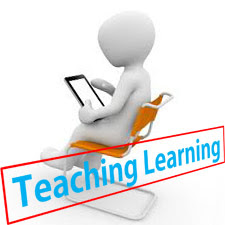Introduction
Business
Communication is a term which is a combination of business and communication.
It is very essential in any business organization. Present day world is the
time of business. Communication can be distinguished as personal versus
business communication. Business communication simply more professional, more
formal and more systematic in nature in comparison to personal communication.
More specifically the communication which occurs to run the business, to
organize it and to promote it.
Every
person wants to get success in his business. It is only possible by effective
communication. The problem in business mainly occurs when the communication
lacks. To support the significance of business communication, it is said in
academia that communication is the life blood of any business organization. It
should be circulated in a constant and systematic way as per the blood in our
body.
In
this regard, many academicians, businessmen and professionals often ask and
deal a question. How to achieve success through effective business communication?
Discussion
Let's
discuss it with some appropriate examples and reasons.
Communication
deals with human mind. It is not only sufficient to be a perfect communicator
for example, the good command of a language and contextual use of it, you have
to understand your audience. The profile of audience gives you the insight to
make your message fit to the need and interest of your audience. There are many
more things to deal to make your communication effective for achieving success
in business communication.
1. First of all, you have to analyze your audience profile.
Audience profile means the detail understanding and knowledge of your audience.
Who are they? What is their education, social and cultural background? Where
are they from? What is their age? etc.
2. Before you communicate, either you have a presentation of
discussion involves in meeting, it is your responsibility to give some
information and background knowledge in advance. Let your co-workers, managers
and customers be prepared and encouraged by using the effective communication
techniques.
3. At the time of discussion in meetings, seminars and workshop,
it is always requires to keep the track of the questions the audience ask you and
make a plan that how you response them. Be an active listeners and ask you need
clarification in question. Beginning a conversation with an open ended question
is more appropriate whereas closed questions is more suitable when you require
a simple response 'yes' or 'no'.
4. Type and nature of message determine which form or format
of communication is right for the particular situation. You have to choose
appropriate and right format. Writing email can be suitable in one type of
message whereas oral presentation is in another type.
5. Proof reading and editing is one of the unavoidable task
in writing messages. Indirectly it is also important in oral presentation and
public speaking. Because for an effective public speaking also you prepare a
message in written format even though the delivery is in oral form.
7. Always wait for the judgment until
the end of conversation. Interrupting the speaker at the time of presentation
might violate the track of the speaker.
8. Understand
diversity and take diversity as an opportunity. It is the reality in business
communication. Globalization, rapid development in mass communication and expansion
in human need has touched the widen horizon of business. It has collapsed the
cultural and geographical constraints.
More specifically, the two (listening and nonverbal skills) things that make your
communication effective for achieving success. They are:
a. Improving your Listening Skills
b. Promoting your Non Verbal Communication
Improving your listening skills is very important in
the present day world. People love to talk more rather than listening to other
in communication which has become one of the severe problem in business communication.
When you speak but do not listen, your communication remains incomplete and
partial.
By supporting the role of listening skills for
effective communication, The United States Department of
Labor Secretary's Commission on Achieving Necessary Skills (SCANS) also has the
provision of the bases of listening skills for the professional status. It
highlights the functions of listening as follows:
1. Good
listening skills enable the workers to understand the working conditions and
the assigned tasks which automatically makes them confident and highly
motivated towards their tasks.
2. There
is difference between hearing and listening. To hear somebody is not sufficient
to understand others, you have to listen him/her, need to prepare yourself
before you listen and give focus to the subject matter.
3. Better
listening skill helps in rapport building, promoting trust with coworkers,
managers and clients. It creates the more democratic environment among the
workers.
4. Workers
who listen well tend to work better in a team-based environment.
5. Good listener maintain eye
contact with the speaker to show the attention.
6. Good listener does not interrupt
the speaker. S/he waits until he or she is completely finished, then ask
questions.
7. Good Listener control body
language. As much as possible, sit still while listening.
Conclusion
Thus for the overall
success of the business communication there should be effective listening
because everything starts from listening. It is the receptive skill of
communication. Those people who have better listening skills and perform professional
and harmonized nonverbal communication certainly get success in business.
References
Business Communication Note ed. by Timilsena (2019)
Related Article









0 Comments